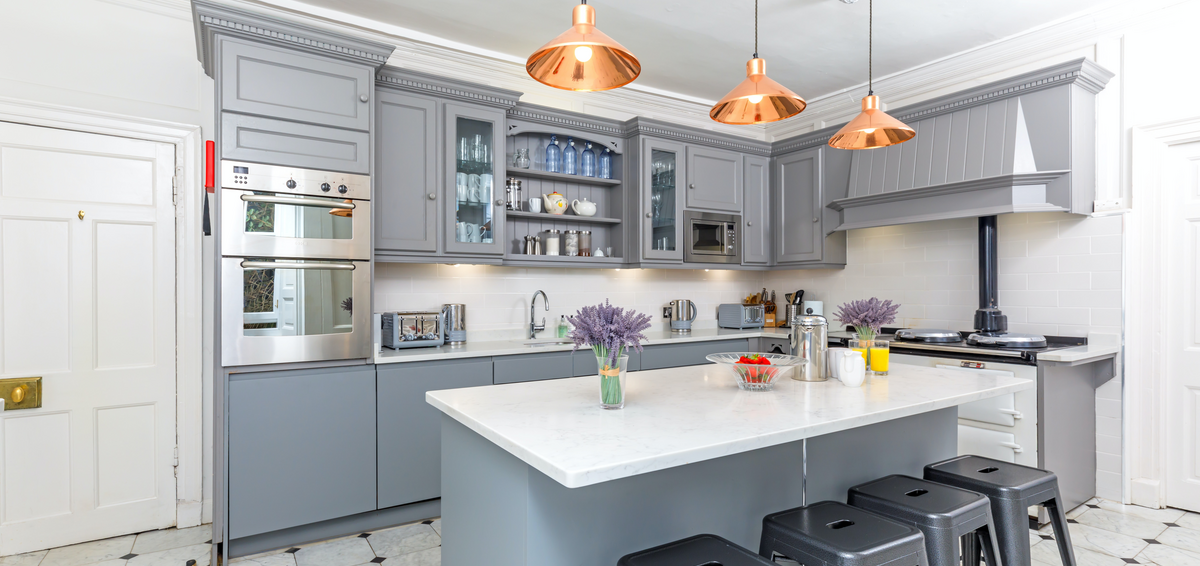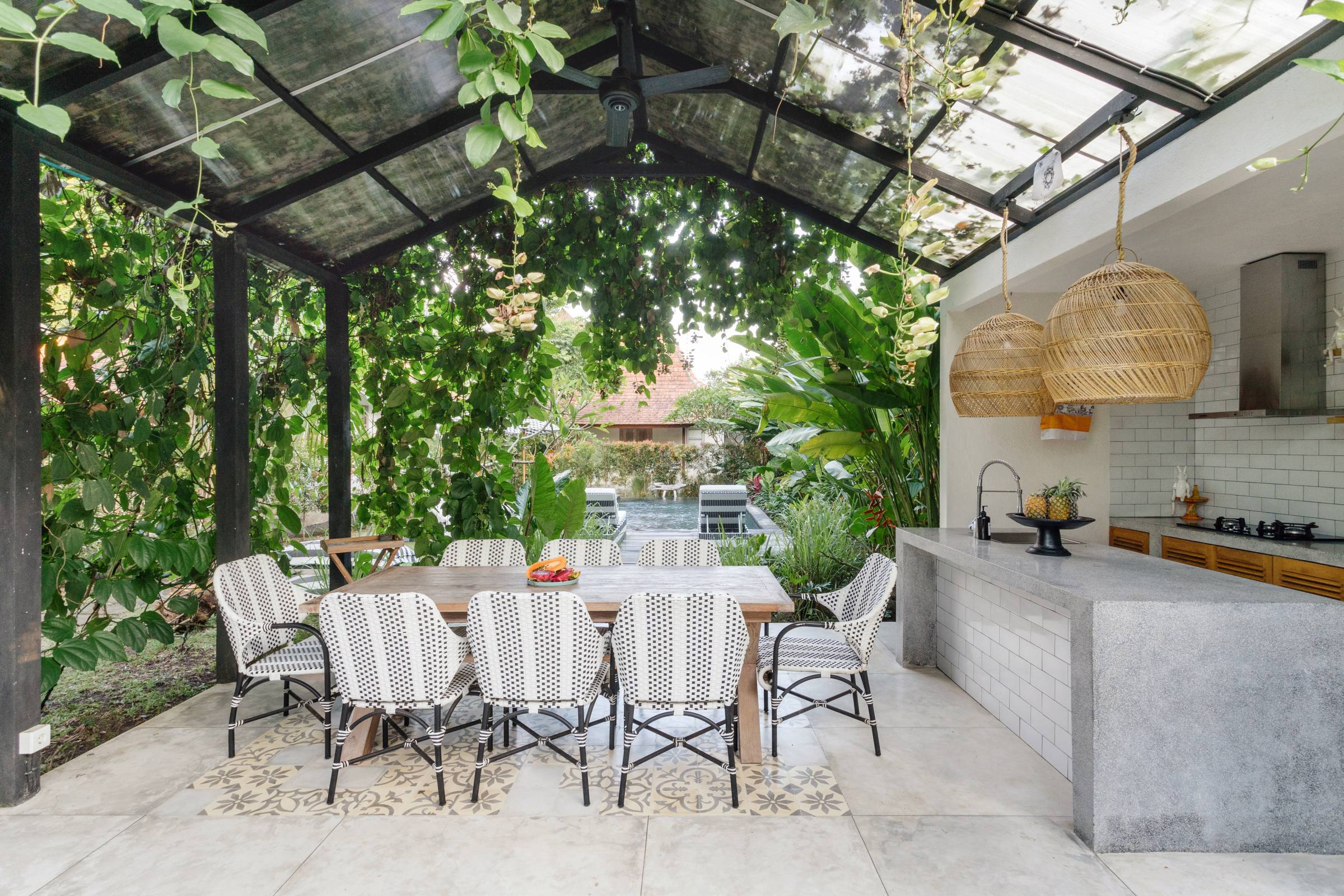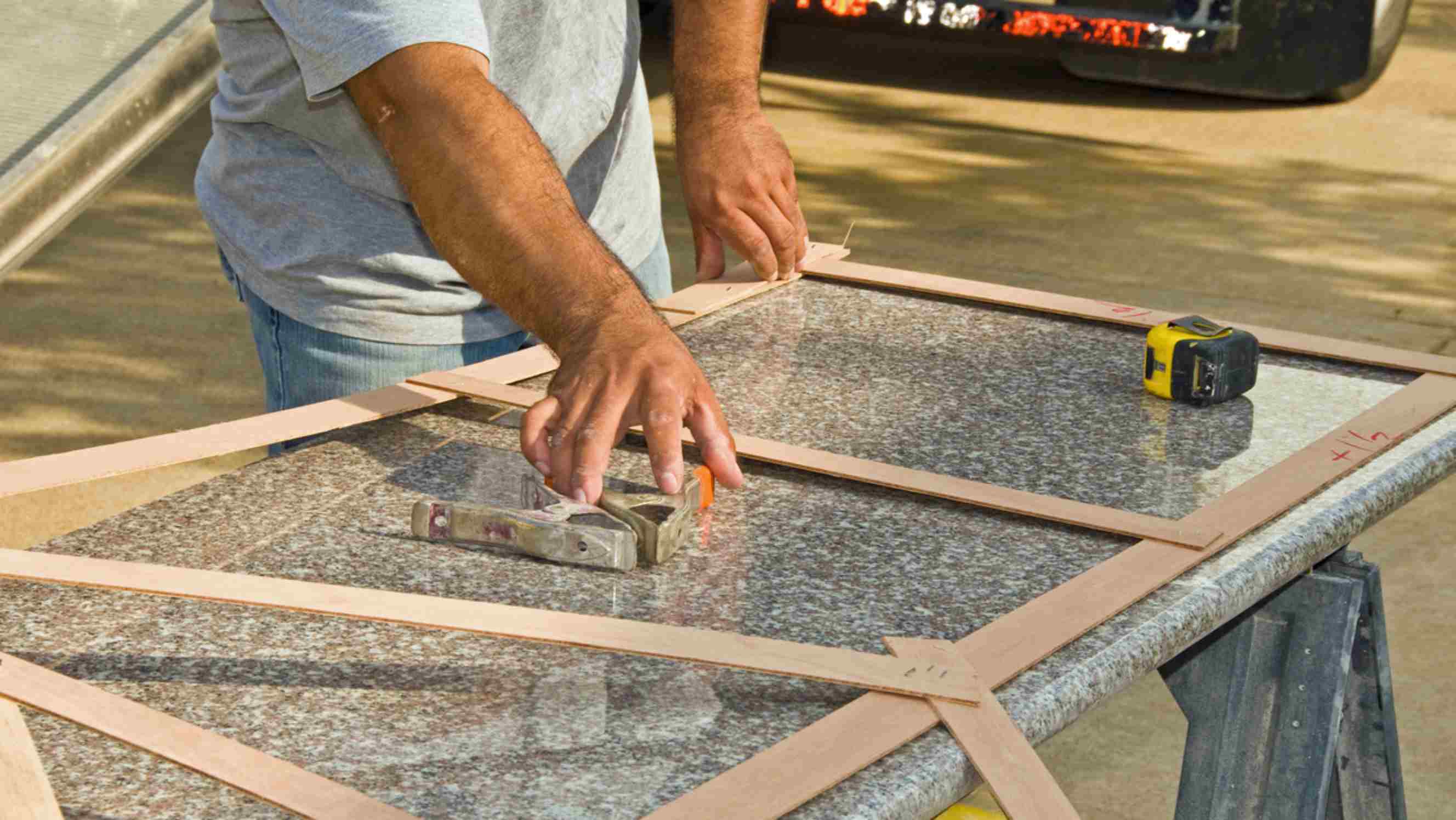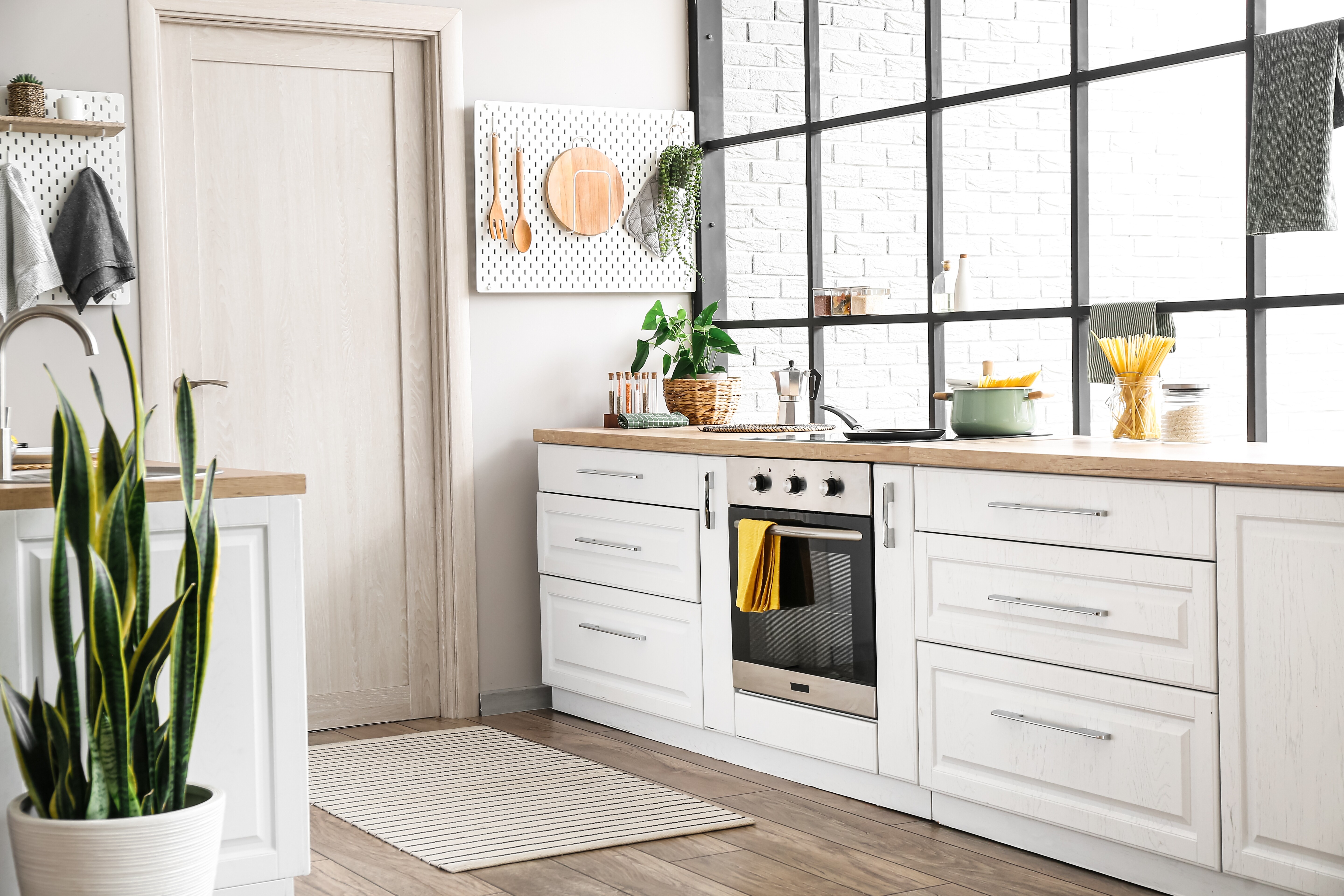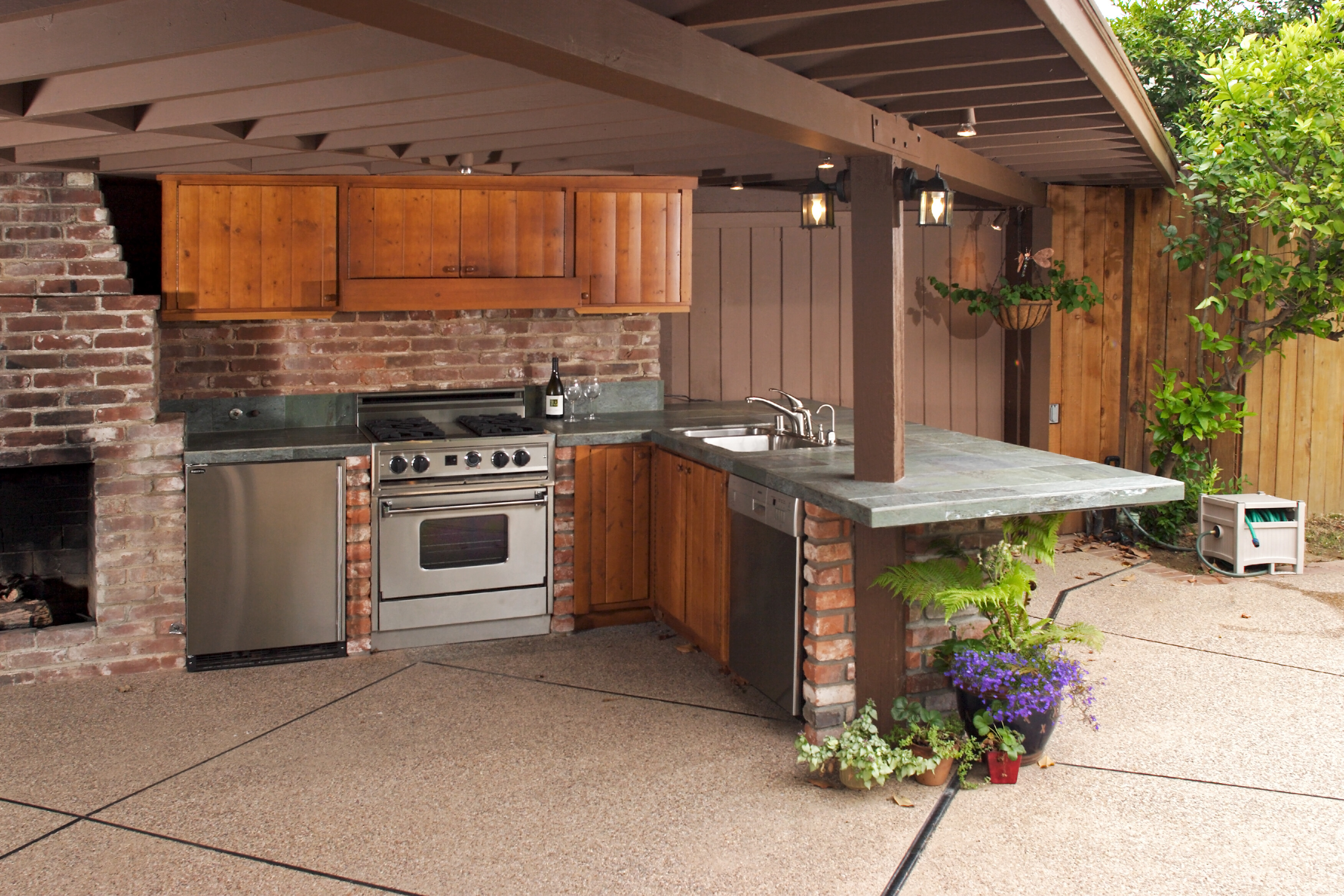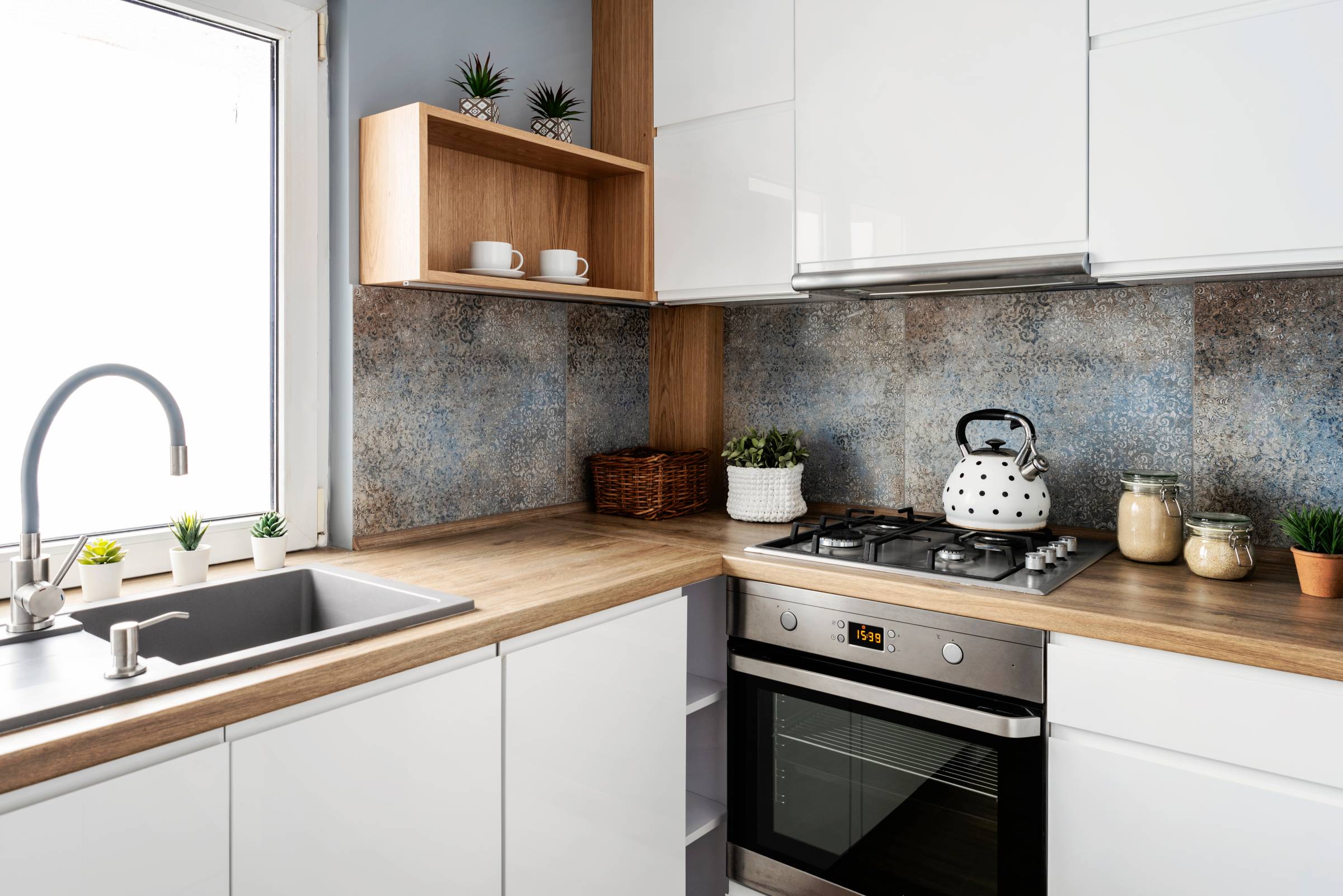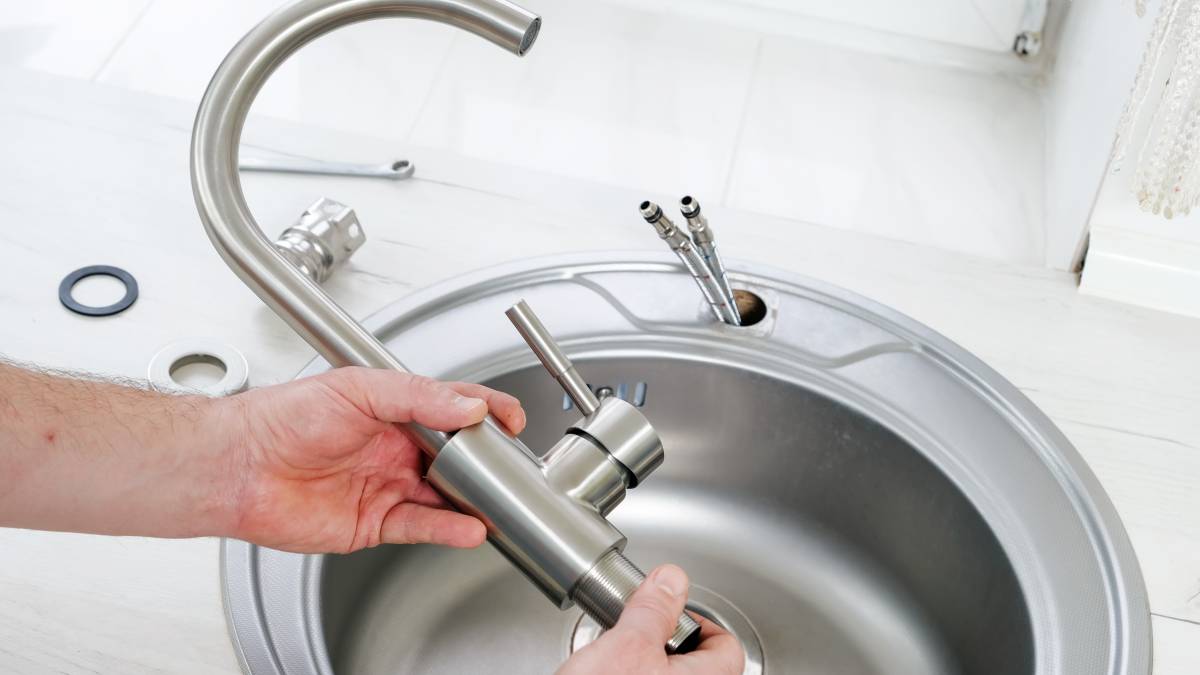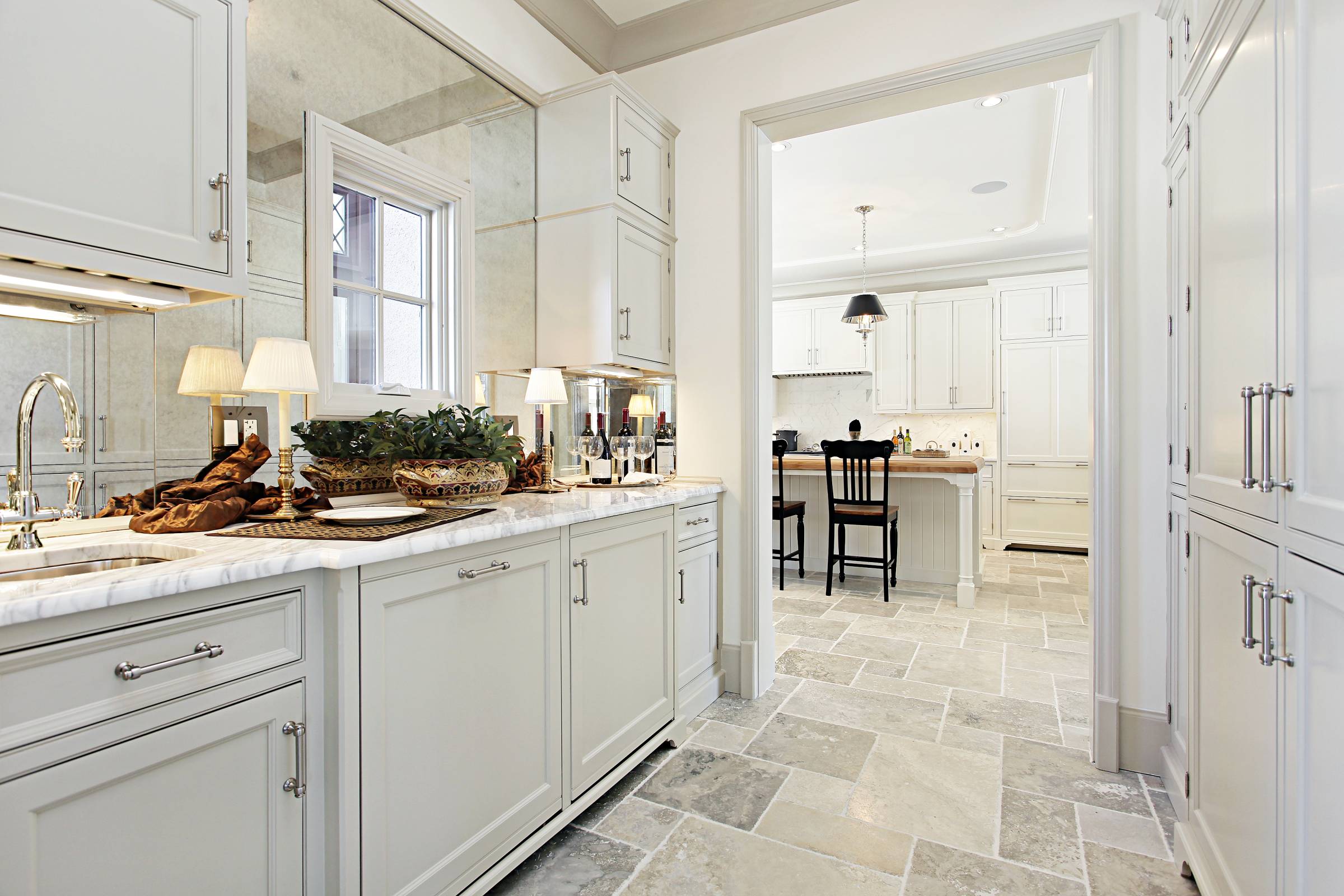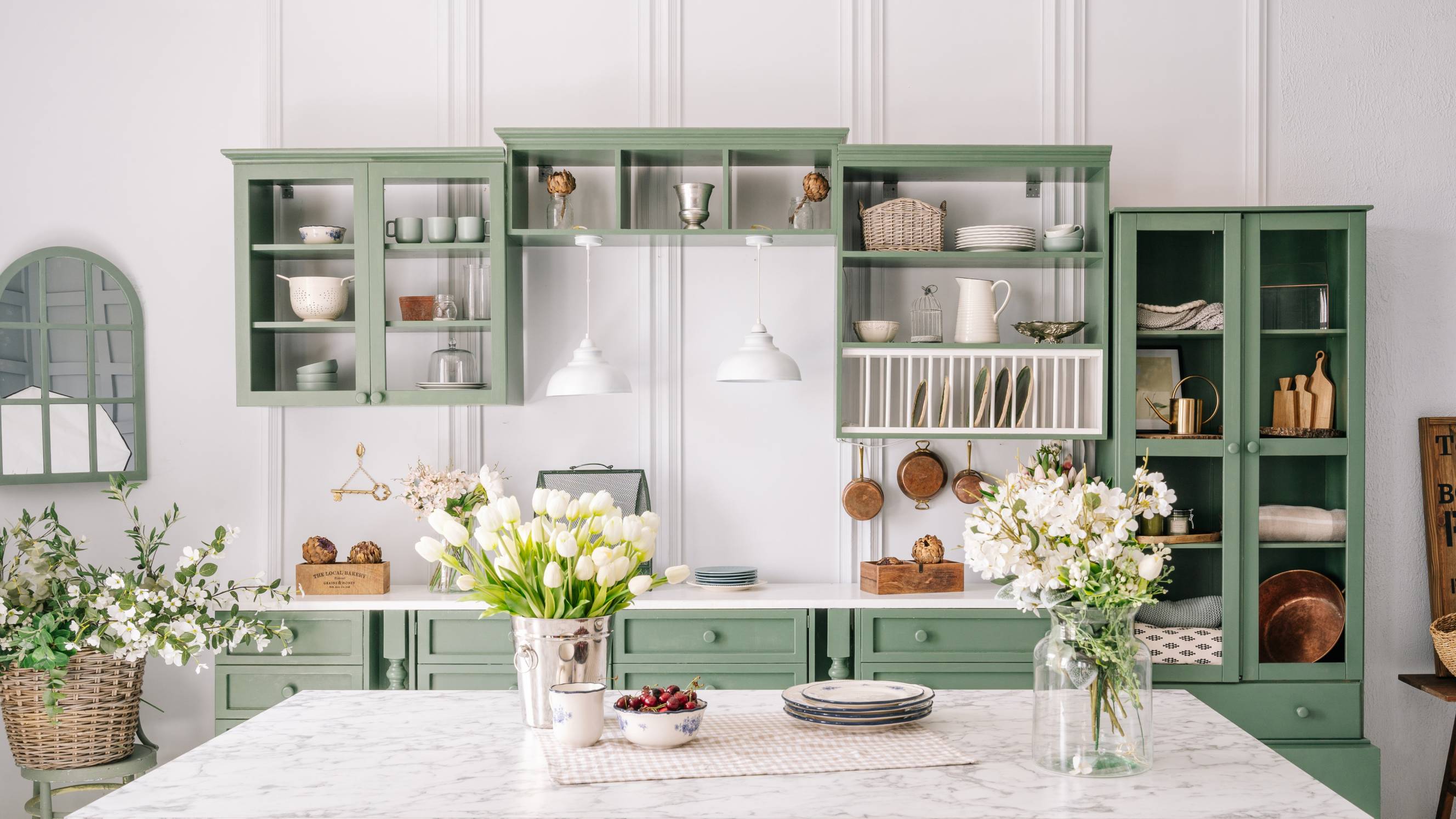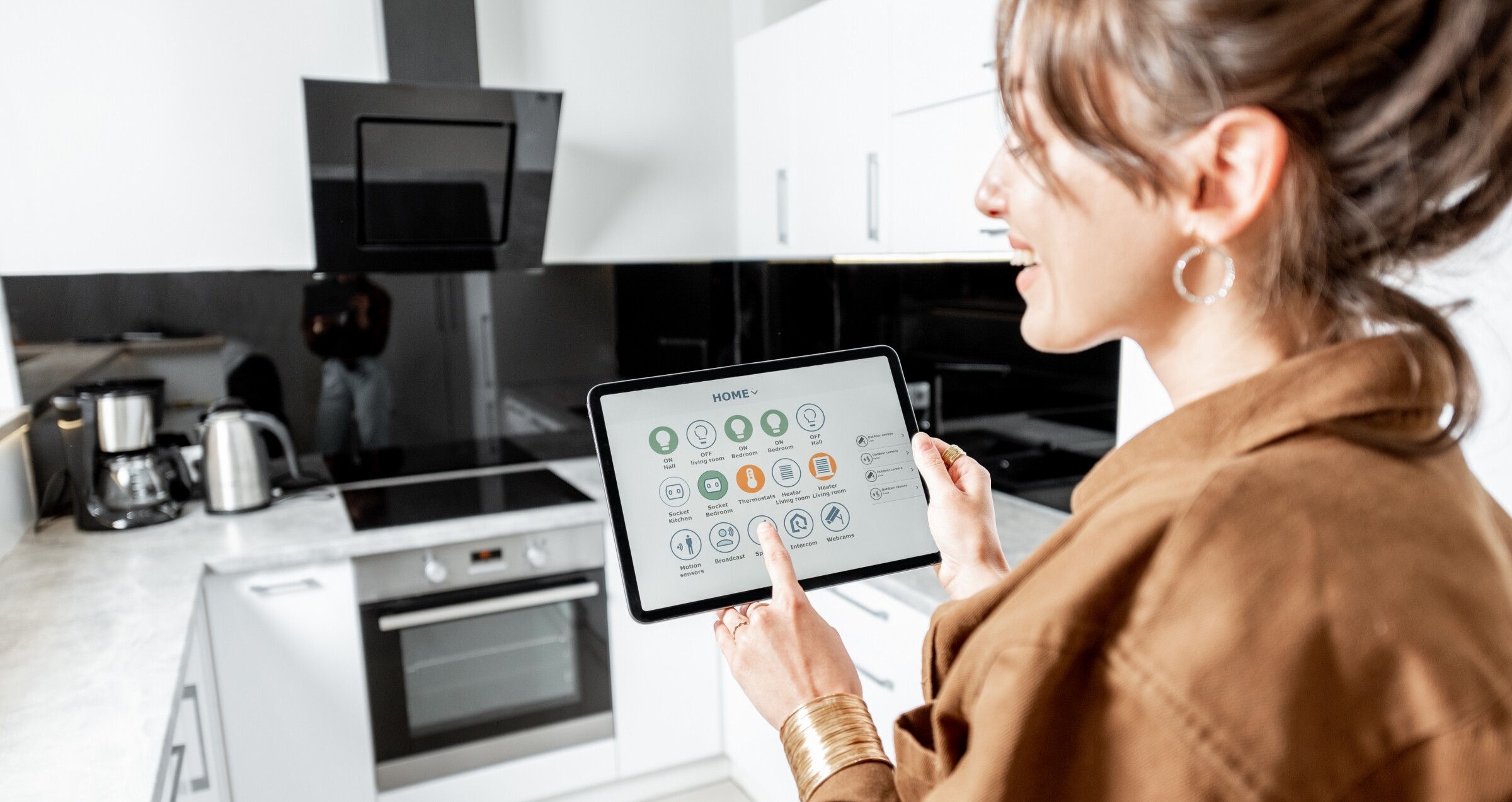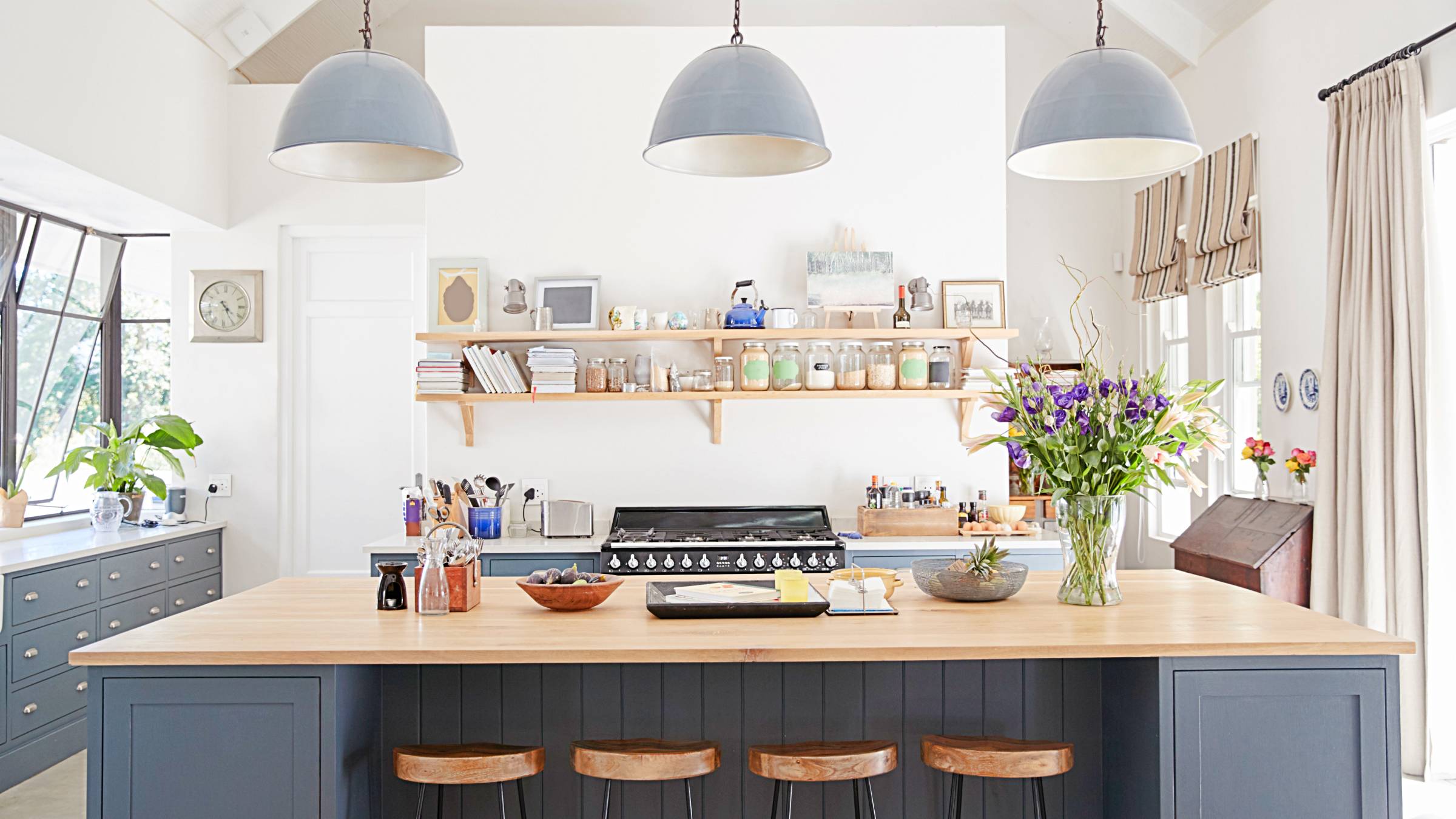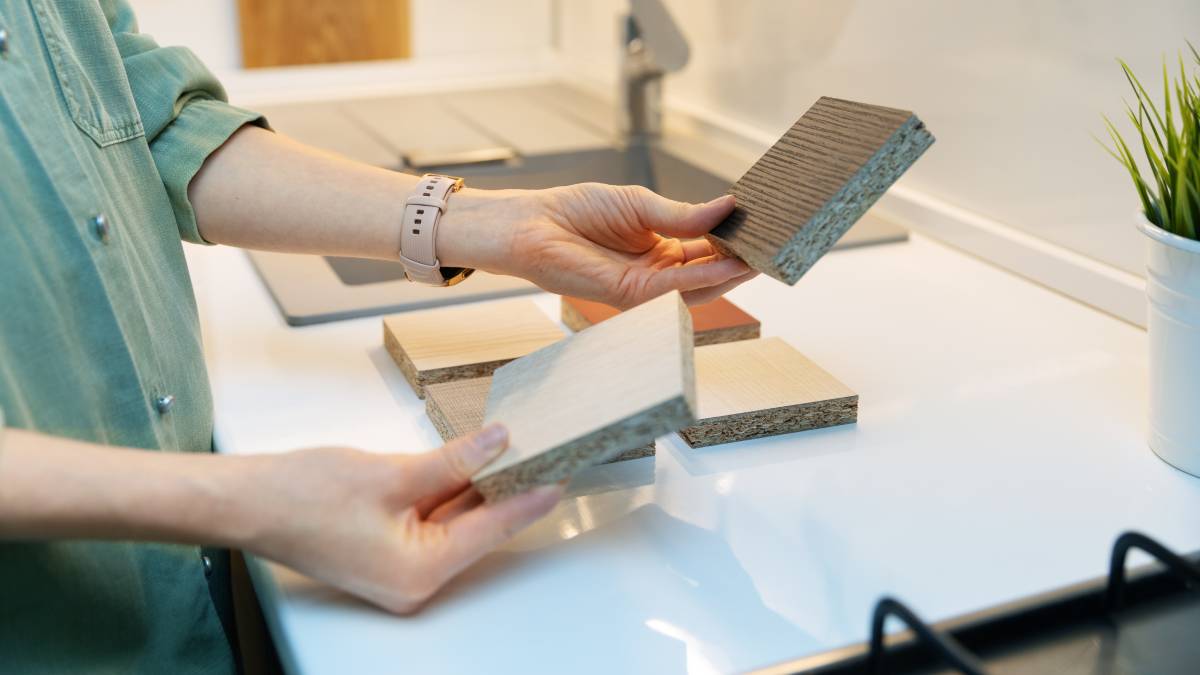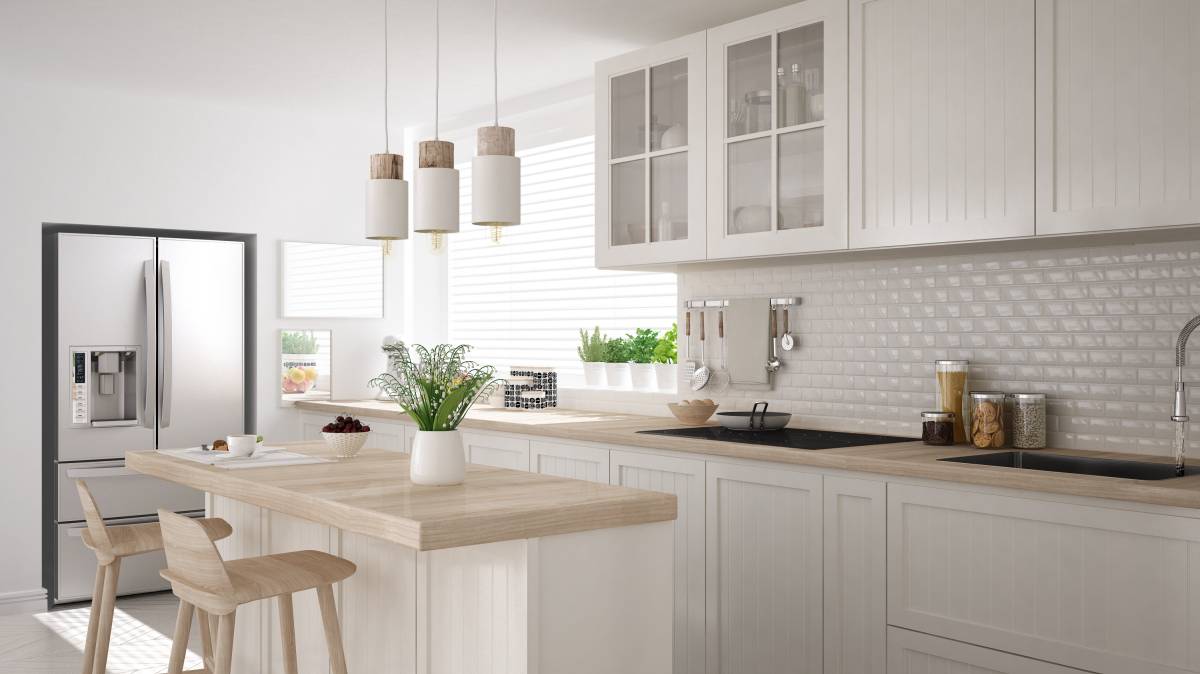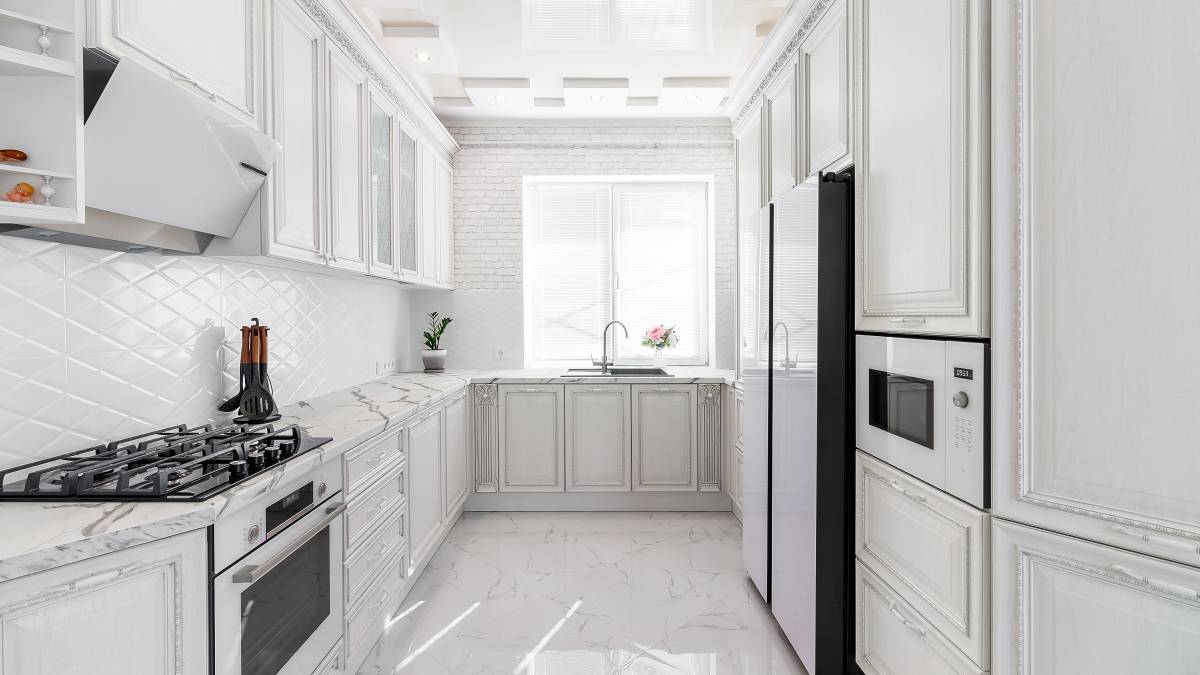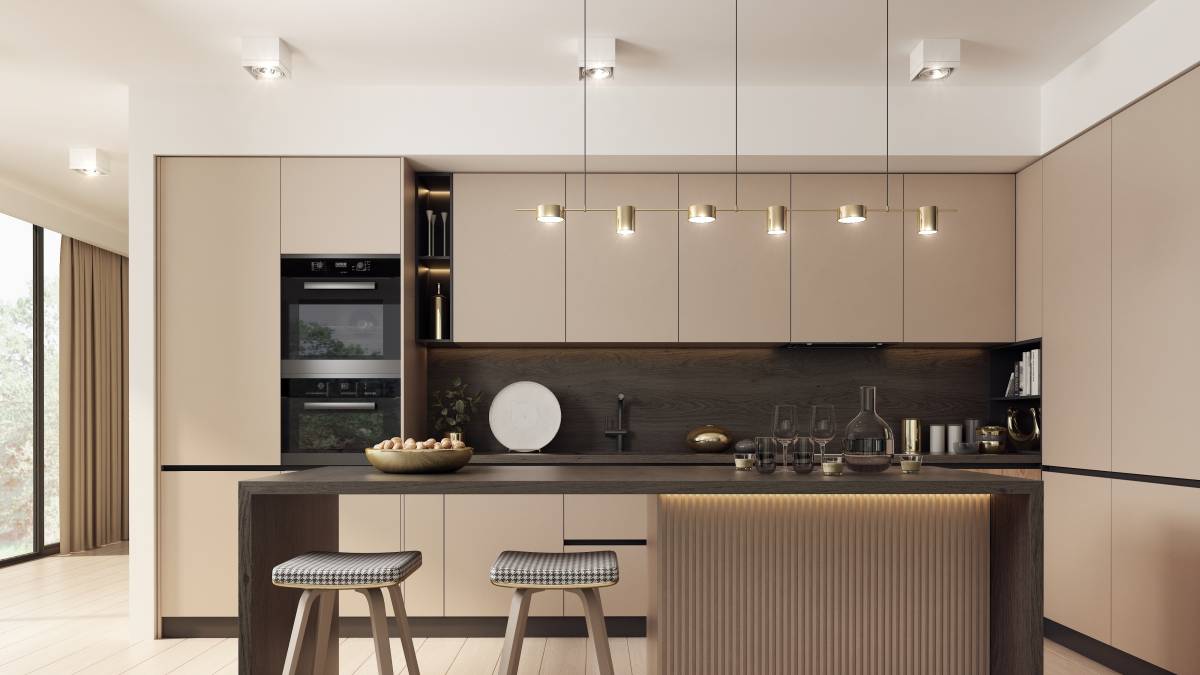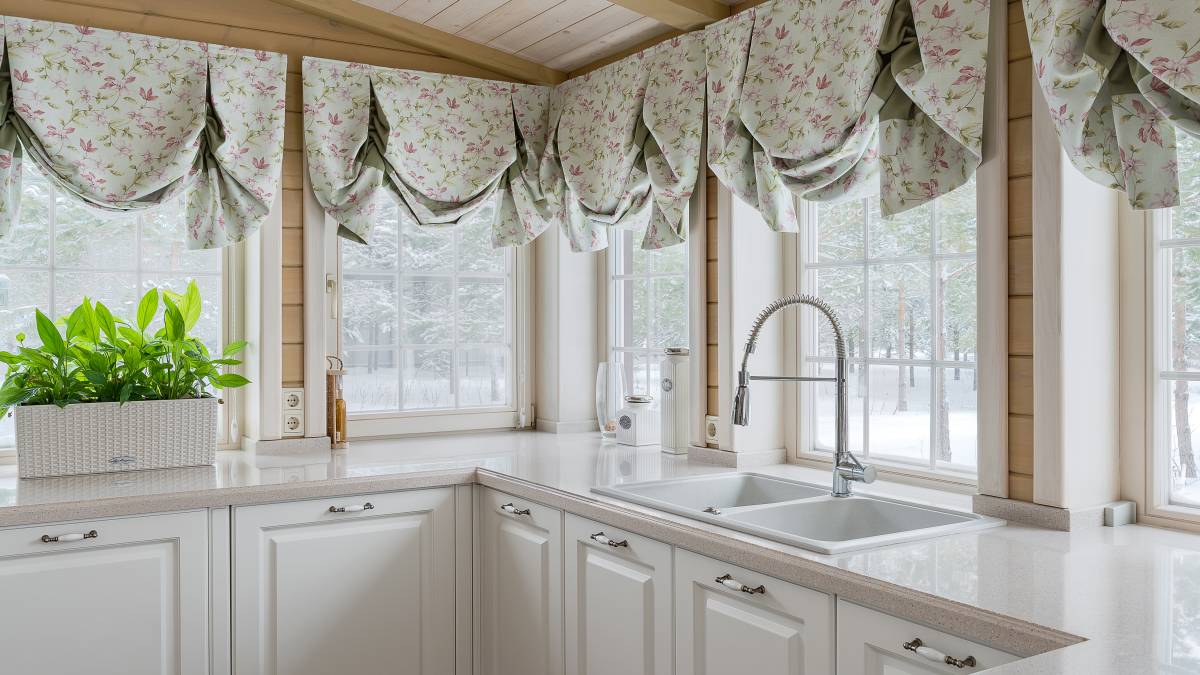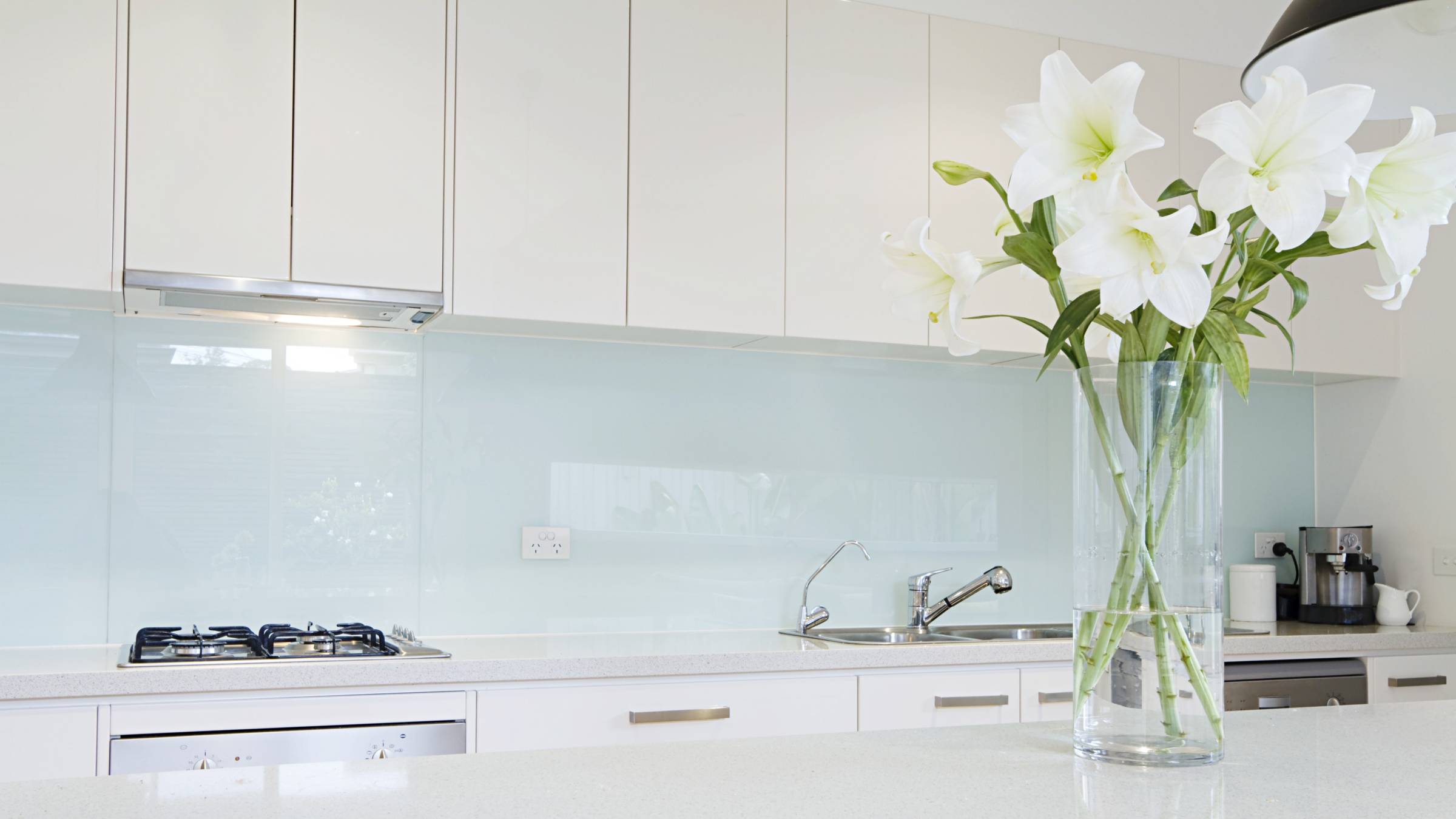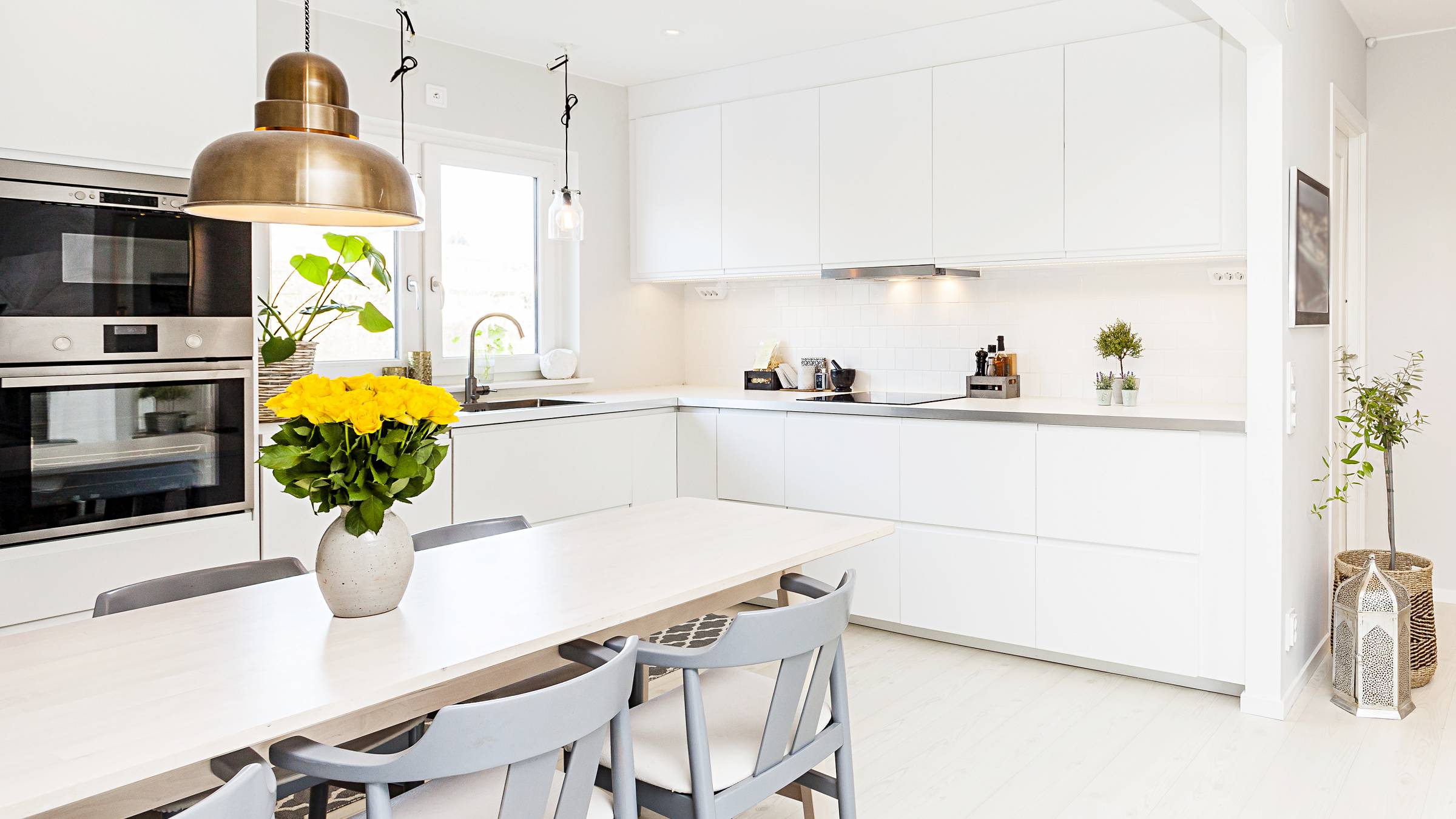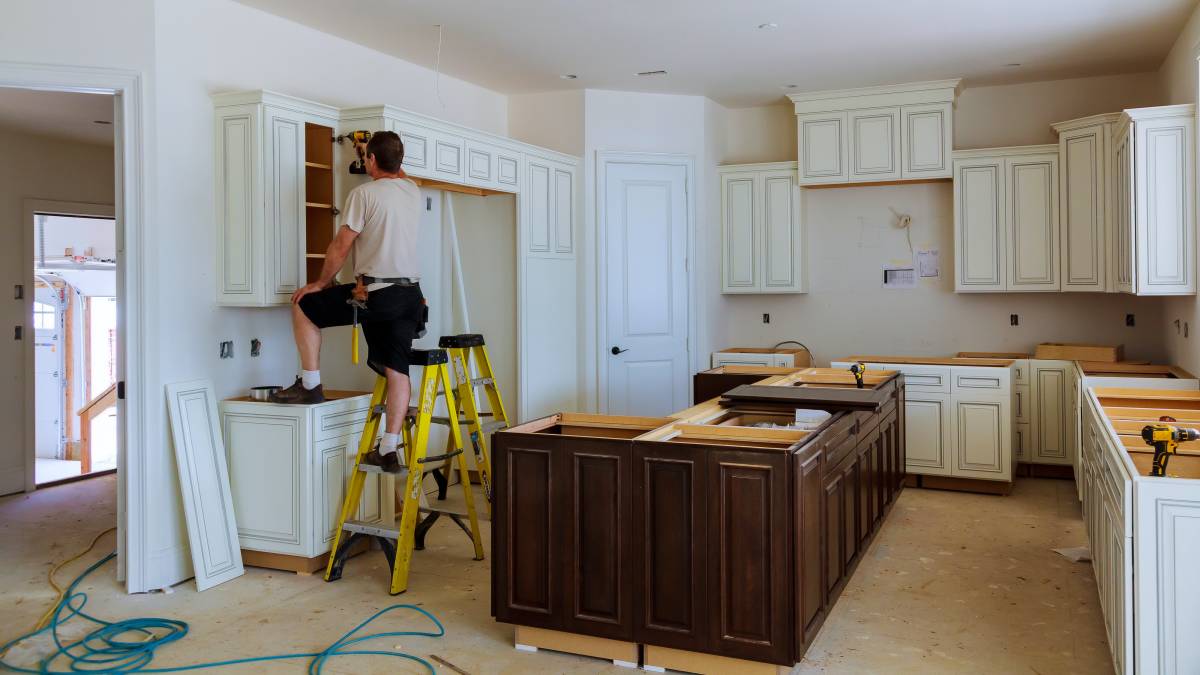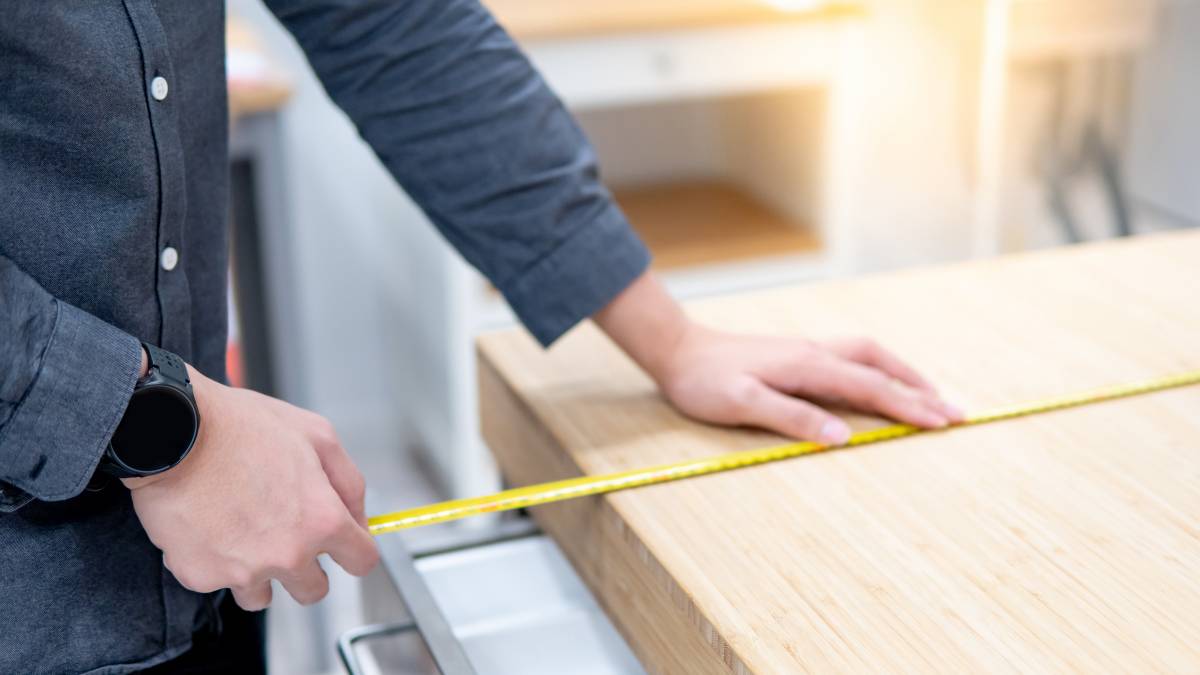- Home/
- Guides/
- Kitchen Renovation/
- Tips for Sustainable Kitchens
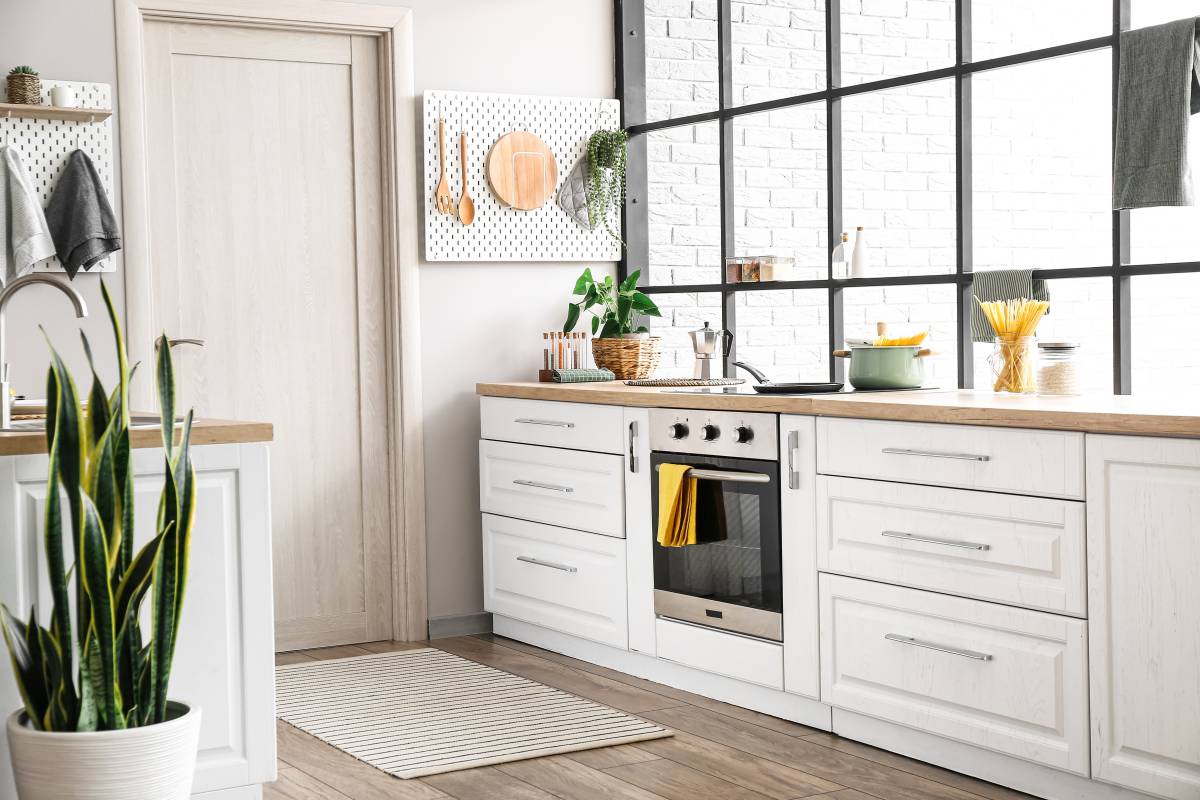
Eco-friendly kitchen renovations: materials, practices, and appliances
Renovating your kitchen with the environment in mind
Hire a kitchen renovatorLast Updated on
Key Facts
- Eco-friendly materials, like reclaimed wood, bamboo, and cork, can be used in kitchen renovations. These are often more sustainable than traditional granite and marble.
- Eco-friendly practices, such as using low-flow faucets and water-efficient appliances, can be incorporated into kitchen renovations to conserve resources.
- Eco-friendly appliances, such as induction cooktops, solar ovens, and energy-efficient refrigerators, can help reduce your kitchen’s carbon footprint.
According to the World Bank, an average Australian contributes at least 15 tonnes of carbon dioxide annually. It is over the recommended 2 tonnes per person to maintain the global temperature by under 2 degrees Celsius by 2050.
While you are likely to point your fingers at your gas-guzzling utes and sedans for global warming, you might have missed an underrated culprit: your house. Without you noticing it, your home renovation project’s carbon footprint is making Australia (and the planet) a less safe place to live.
You can turn things around and make a positive impact on Earth by considering sustainable kitchens. This article explains what it means, why it is becoming more important, and how to build or remodel one, including sustainable options for kitchen products.
What are sustainable/eco kitchens?
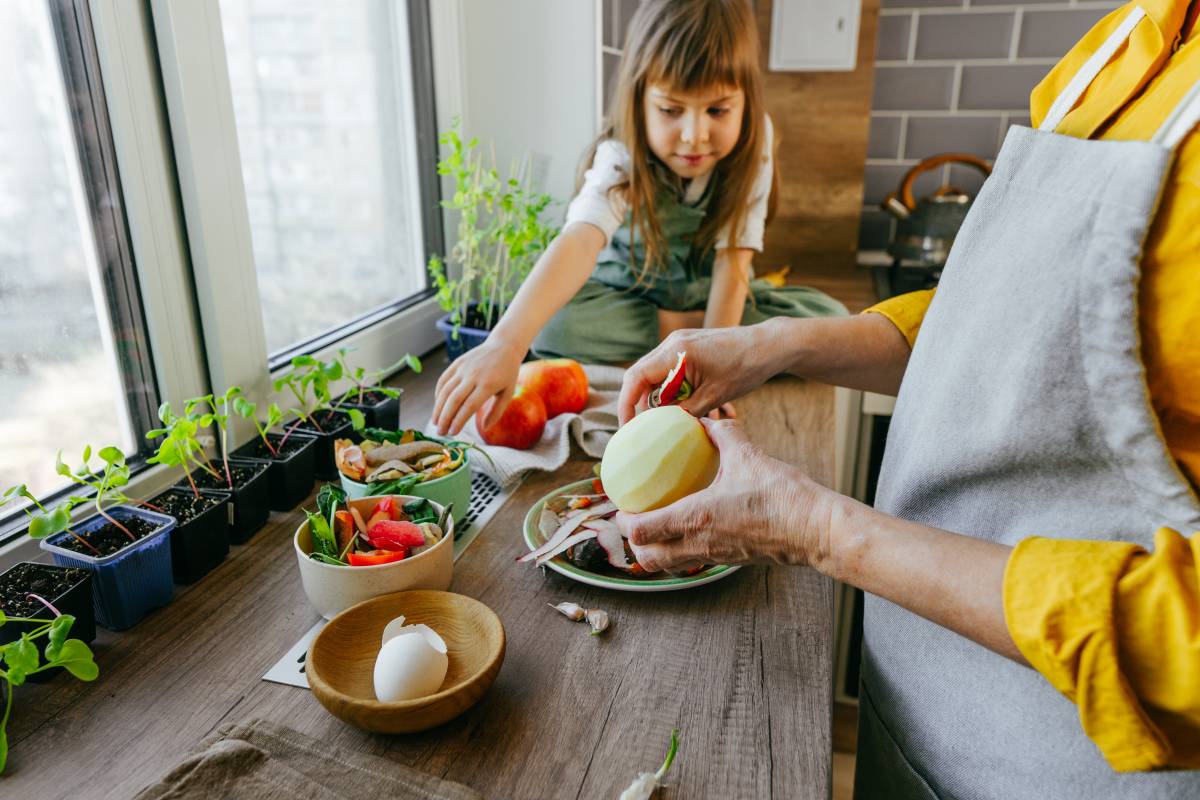
Sustainable or eco kitchens, also known as green kitchens, encompass a range of factors that benefit the environment. These include the use of natural materials, energy-efficient appliances, and waste-reducing practices.
In particular, eco kitchens have the following salient features:
Efficient use of available resources, such as water and energy. These may include maximising natural light or using energy-efficient devices.
Integration or use of environmentally friendly materials. Great examples are bio-based floor tiles made of rice straw, spent coffee grounds, clam shells, or discarded seaweed, as well as stainless-steel commercial bench tops and sinks instead of laminates and resin to mimic concrete flooring.
Proper heating, ventilation, and insulation. A well-thought-out design minimises excessive use of air-conditioning systems during summers and heaters during winters.
Smart spaces. An environmentally friendly kitchen optimises available space, minimising the need for excess materials and resources.
Earth-friendly methods and lifestyles. These include opting for reclaimed materials over new ones during remodelling, growing food in the backyard, or eating nutritious whole food.
Why is it important to have a sustainable kitchen?
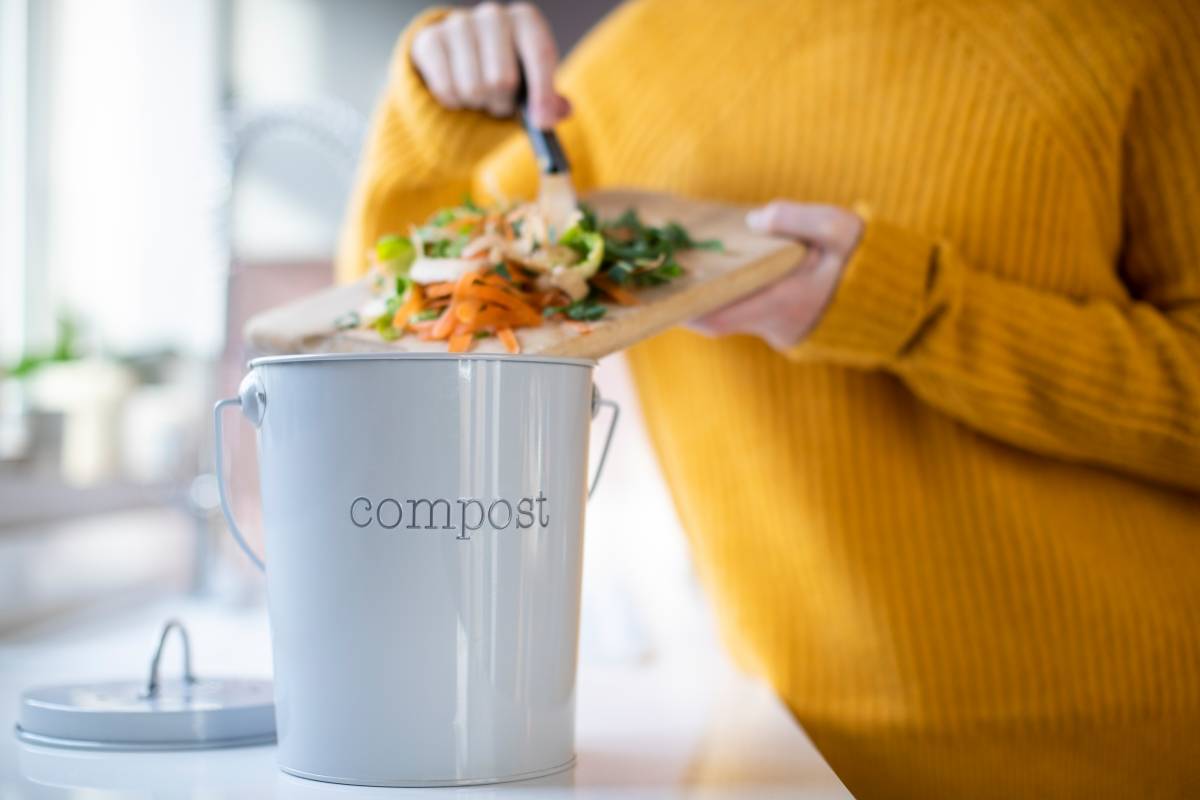
Contrary to popular belief, with the right kitchen design team and mindset, renovating this essential part of your house can be pocket-friendly. Even better, its benefits extend to the environment. Here are the best reasons to consider designing, building, or developing sustainable kitchens:
1 . The effects of climate change can be horrendous.
As the world’s temperature rises, polar ice caps melt, increasing sea levels, causing low-lying islands to disappear gradually and displacing millions of people.
In Australia, climate change and global warming are responsible for longer and more frequent droughts, severe storms, and unpredictable weather conditions affecting crop growth and, later, food security. These were also the primary causes of coral bleaching in the Great Barrier Reef.
2. Harmful emissions also affect your well-being.
Another significant danger of climate change and global warming is poor air quality. Higher temperatures can trigger a type of greenhouse gas called ground-level ozone, which traps atmospheric pollutants.
Consistent or long-term exposure to these substances, known as particulate matter (PM 2.5), can increase the risk of respiratory conditions, such as asthma. It also worsens the symptoms of chronic illnesses like emphysema.
If these are not enough, a 2023 study by the University College London and Francis Crick Institute suggested a link between lung cancer and particulate matter. Other types of research also implied that it could boost the chances of developing dementia, as these particles cross the blood-brain barrier.
3 . Eco-friendly kitchens can improve body and mind.
If global warming can make you sick, using wood-based materials, including reclaimed ones, could be great for physical and mental health. One theory suggests that humans are biophilic, which means we search for and form an intense connection with nature. It partly explains why nature-related activities, such as forest bathing and grounding, help keep us calm, focused, and relaxed.
Furthermore, a 2015 Harvard double-blind study also revealed that participants who worked in “green offices” scored 61% higher in cognitive performance than those in conventional environments. In particular, they fared well in crisis response, information usage, and strategy.
Tips for sustainable kitchen renovations
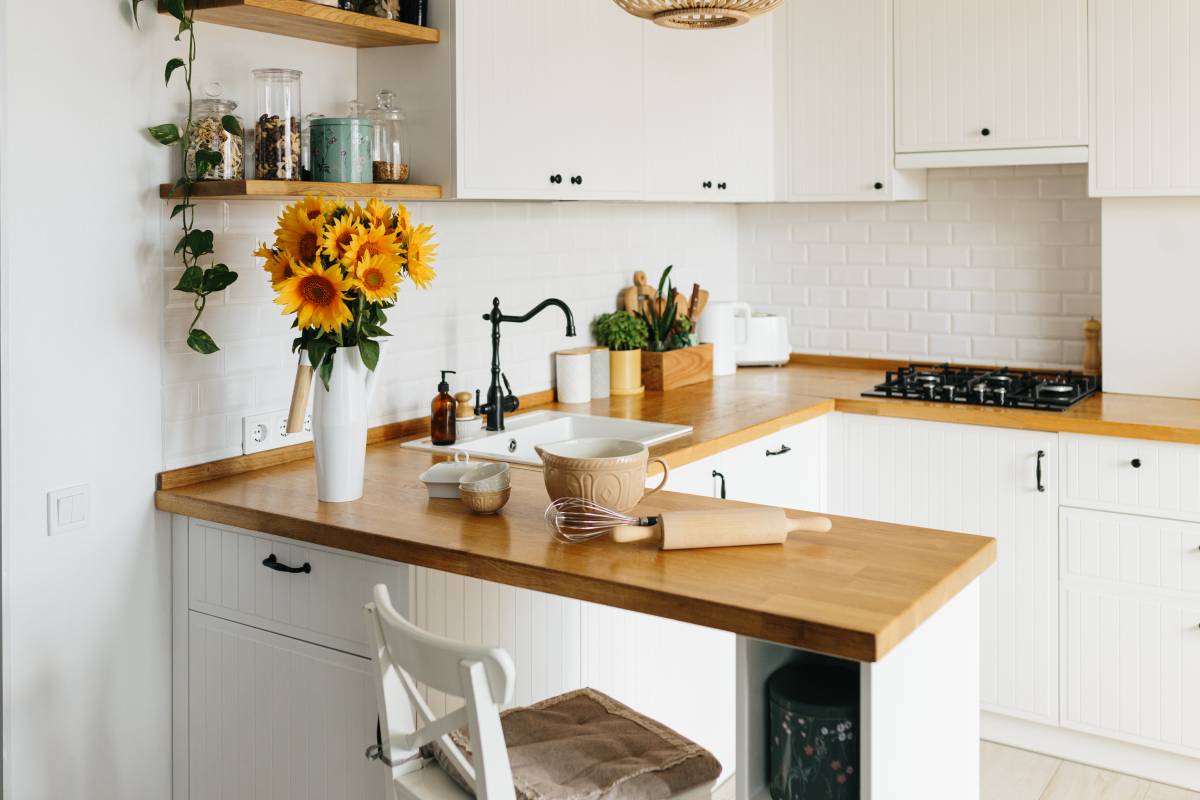
Now that you know the benefits, you might be wondering how to have a sustainable kitchen. Do you need to rip your existing kitchen? Here are the top ideas on how to make your kitchen eco-friendly (and you do not have to spend a lot!):
Decide whether you require a new kitchen. As others say, why fix it when it is not broken? Unless you have severe issues, such as broken floor tiles or poor insulation, you can save yourself the hassle and resources of renovating a kitchen.
Get smart with kitchen design. If you think you can save more money and make a bigger environmental impact when you remodel, be wiser about it. First, decide what matters to estimate the project costs more effectively. Consider unfitted kitchen islands or peninsulas so that you can change the look without major renovations. Invest in big windows that allow natural light to flow and promote good air circulation.
Switch to non-toxic paints. Traditional types of floor, wall, or cabinet paints might release volatile organic compounds (VOCs) that contribute to indoor pollution.
Reuse materials when you can. For eco-friendly kitchen cabinets, repurpose old cabinet bodies and give them a brand-new look with a fresh coat of non-toxic paints. Do you want a bespoke kitchen? Thrift your bins and storage containers.
Reduce waste. Save food scraps and turn them into compost when growing your own food. Buy only what you need. If you have spent coffee grounds, you can add them to your plants for nitrogen. Donate unused appliances, plants, glasses, and cutlery instead of dumping them into landfills. Save on water and energy.
Shop local. Buying from your neighbours or at the farmers market helps reduce your carbon footprint because these goods do not travel far and, therefore, do not consume a lot of gas. You can also help your economy.
Tips for selecting sustainable kitchen products
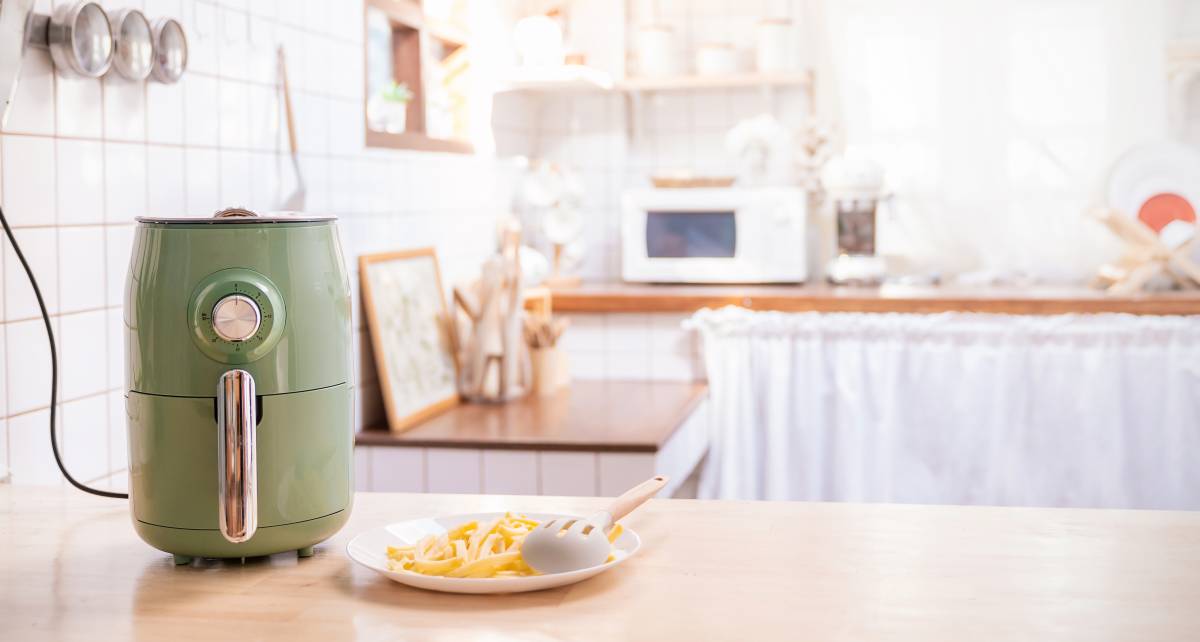
A green kitchen will not exist without equally sustainable products, but not all might be worth a spot in your home. Here are some tips when buying eco-friendly kitchenware and appliances:
Know the maker. If you are buying wood, does it come with a forest certification from a reputable certifier such as Forest Stewardship Council? Is the manufacturing process resource-intensive? Does it use an insane amount of water or energy, such as electricity? Are the source materials ethically acquired?
Invest in energy-efficient appliances. In Australia, newer appliances, such as heat pump dishwashers, now include an Energy Rating label. The higher it is, the more energy-efficient the product is. Single-phase, non-ducted air conditioners may also have a Zoned Energy Rating label. It tells you how the AC performs in your region. If the appliance does not have such labels, compare its energy consumption to similar products.
Ditch the plastic bags. If you can manage to do only one thing for sustainability, it is to avoid using plastic at all costs. They do not decay in landfills, pollute the waters and impact the marine environment, and use a lot of water to produce. Some studies also said that they could affect hormone balance. Instead, embrace more sustainable materials, such as canvas tote bags or recycled glass jars for storage.
Achieve a sustainable kitchen with Airtasker
Building a green kitchen is good for your health and the planet, benefiting you and future generations. But sometimes, the idea seems intimidating and overwhelming. You might struggle to develop a plan incorporating all the tips and ideas in this article.
Airtasker is here to help you find professionals to help you with kitchen renovation, design, and planning. Many can recommend the best sustainable kitchen materials based on your house’s layout, goals, and needs.
Make creating a sustainable home and lifestyle easier. Create an account at Airtasker today, post your job description, and get proposals from experts in your local area.
Reference list:
FAQs on sustainable kitchens
Many people who want a more sustainable way of living struggle to maintain it, especially in their kitchens. They have limited access to eco-friendly kitchen products, while others find them expensive. Other challenges can also include renovation restrictions, material durability, consistency, and availability of source materials.
Australia has many programmes, grants, and incentives for those who want to build a more sustainable home. In the Australian Capital Territory (ACT), for example, a new scheme entitles homeowners or those with a driving licence at the time of application to obtain a loan from $2,000 to $15,000 to upgrade to energy-efficient products, such as electric stovetops, and pay it off within 10 years.
You can reduce water consumption in the kitchen and increase your positive environmental impact by switching to energy-efficient appliances such as low-flow aerators, using dishwashers more efficiently, and fixing water leaks promptly.
Besides avoiding or replacing fossil-fuel-burning appliances, you can decrease energy consumption and build a more eco-friendly kitchen by allowing more natural light to enter and buying products with a high energy rating. Consider using recycled materials for accessories to help reduce the excessive use of energy in manufacturing new products.
Find kitchen renovators, fast
Find a kitchen renovator
Related articles
Related price guides
